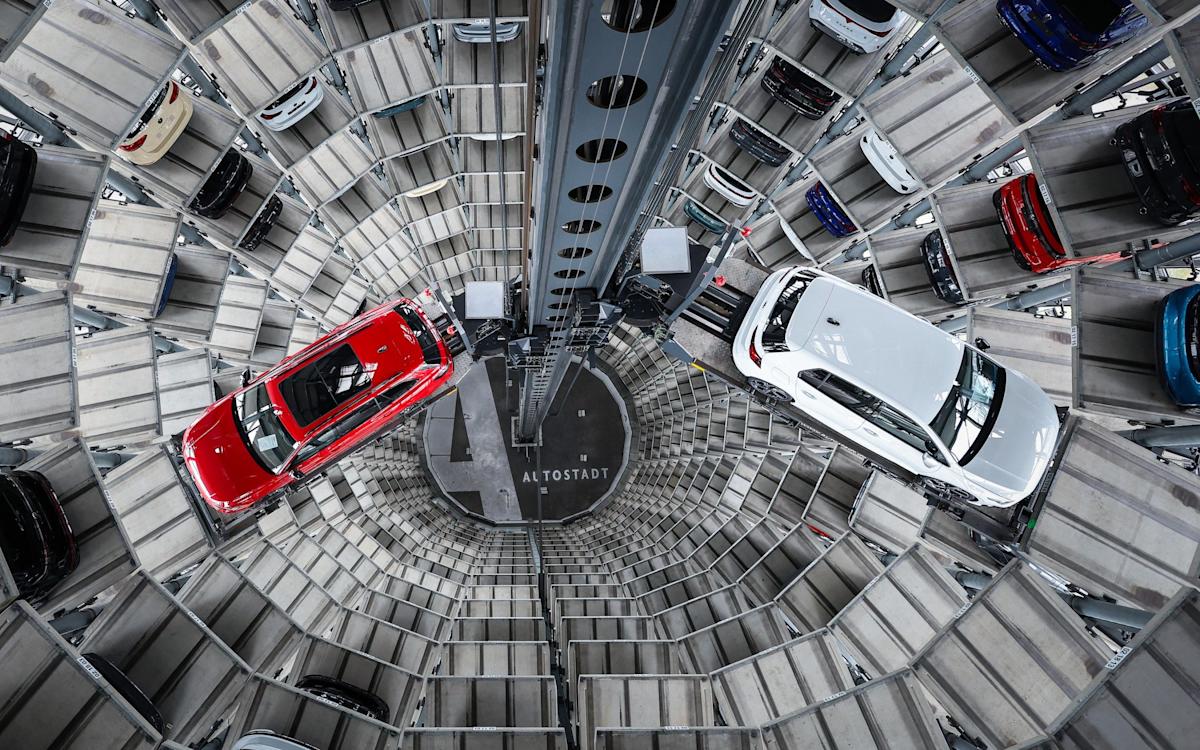VW warns the tariffs could cost billions more without an EU-US trade deal – RONNY HARTMANN/AFP via Getty Images
Donald Trump’s tariffs have dealt a €1.3bn (£1.1bn) blow to Volkswagen after the German car giant’s portfolio of luxury brands suffered a drop in sales.
Marques such as Porsche and Bentley have been hit by the US president’s sanctions on foreign vehicles, which impose a 27.5pc tax on cars imported from Europe.
Britain has struck a deal with Mr Trump to reduce the tariff to 10pc, but the larger penalty remains in place for the European Union, which is still locked in talks with the White House.
On Friday, VW said the tariffs added €1.3bn to its costs in the first half of 2025 and that it could add billions more still, because there was no guarantee of a deal between Washington and Brussels.
Oliver Blume, the carmaker’s chief executive, said: “We cannot assume that the tariff situation is only temporary.
“We are counting on the European Commission and the US government to reach a balanced outcome on the tariff issue.”
VW’s luxury brands have been hit the hardest by the levies, results published on Friday showed.
Profits in the company’s “progressive” stable of marques, which includes Audi, Lamborghini and Bentley, halved in the first six months of the year, while the “sports luxury” segment – which mainly consists of Porsche – tumbled by more than two thirds.
That was after Porsche sales fell by 11pc to around 135,000 cars.
VW warned: “There is high uncertainty about further developments with regard to the tariffs, their impact and any reciprocal effects.”
This gloomy outlook has led to the company slashing its prediction for 2025 sales. It now expects no change from last year, compared to an earlier forecast of 5pc growth.
The blow from tariffs comes at a difficult time for VW, which is already carrying out a major restructuring to cope with the transition to electric cars.
It is cutting tens of thousands of jobs across the group and even contemplated shutting factories in Germany as part of the shake-up.
At the same time, VW and other Western carmakers are haemorrhaging market share in China, where domestically made electric vehicles and hybrid manufacturers such as BYD are becoming increasingly dominant.
These Chinese rivals are also embroiled in a cut-throat price war at home.
The turmoil has been particularly painful for VW, which previously relied on China for one third of its sales and a substantial portion of its profits.
As recently as 2019, the German giant controlled 20pc of the country’s car market, but that has since fallen to 15pc.
